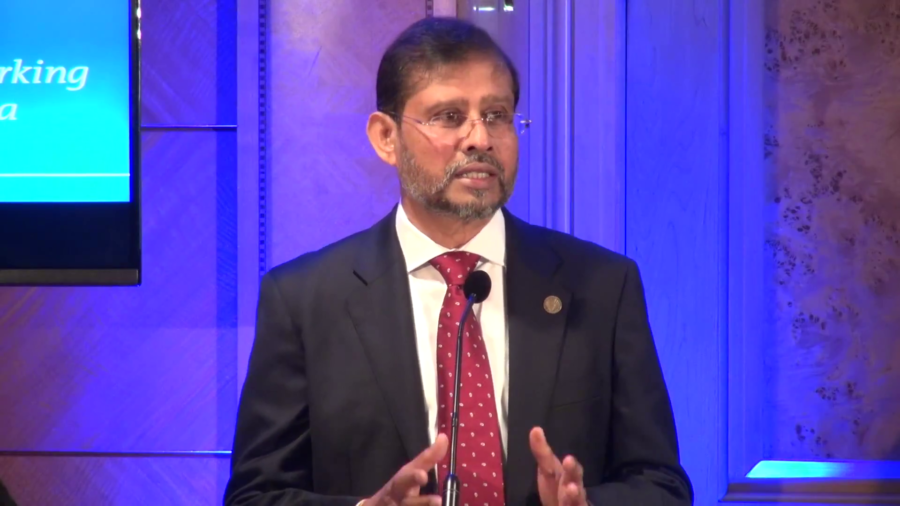Abhaya Induruwa: Thank you very much. Good evening fellow inductees, my family. Especially my granddaughter Kiara who’s with us. And also my friends here.
Imagine a word before the World Wide Web. Imagine a time before you had smartphones. And imagine a life where you had to live at X.25. And this was the time I was dreaming of a research academic network for the Sri Lankan academic community.
It was in 1983, the Vice Chancellor of the University of Moratuwa, Professor Willie Mendis, asked me to set up a department to teach computing. And at that time, I came from electrical engineering, so I’d been teaching Fortran but not computing or computing science. So I looked around and found that there were courses in Hong Kong, Singapore, Thailand, Malaysia at that time. So I came to Hong Kong in 1984. And I visited the Hong Kong University, studied their curriculum. And that was the first time I got a taste of research and academic networking.
It was fascinating to see, even in 1984, that all the non-standard, disparate technologies that were somehow exchanging information. And in 1989, I proposed to the Sri Lankan government the setting up of what I called LEARN, Lanka Experimental Academic and Research Network. You can imagine being a developing country, funds are not easy to come by. So in 1990, with the very limited resources I had, we launched LEARNmail, the first IP-based email for academics and researchers in the country.
Initially, of course, we missed Sri Lanka in the list. But Andy was always helping us to connect through UCP. So we were sending mail by IDD, which was very expensive at the time, connecting three times a week. Now of course the volume exploded, and within a few months we were connecting three times a day. And because it was expensive, we had to seek support. And I must mention the support we got from the Computer and Information Technology Council of Sri Lanka. At the time I was an inaugural board member, so I was able to twist their arms, get some funds. The University Grants Commission of Sri Lanka. And also the LAcNet, a not-for-profit organization set up in the US to support new ICT endeavors in Sri Lanka.
In 1992, I reformulated the proposal and submitted to the government again. But this time calling it LEARN Internet. Now, X.25 was gone, and I was happy. And that time I was lucky. The government was happy to provide three million Sri Lankan rupees, about thirty thousand, forty thousand US dollars at the time. And we were able to buy routers and three 64 kilobits per second wireless links.
And again, I should mention here the developing country workshops organized and funded by The Internet Society. That’s where I met great people like Randy, and George Sadowsky. And I came to know about Steve. And with people like Ben Segal helping us, we were able to set up the first IP WAN in Sri Lanka, connecting my university University of Moratuwa to the University of Colombo, and Open University. And the rest as they say is history.
So I’m standing here today, certainly not because of only my effort. It was celebrating this collective effort that we put in. So, I’m not going to mention names but at least I should mention the billion students I had. Most of them are professionals in their own right today. Professor Gihan Dias, Professor Lalith Gamage, Professor Nimal Attanayake. They were all helping me at the time set it up. And I’m very glad that the country has benefited. I’ve been able to make a significant impact on socioeconomic development in that country. And I’m very delighted to be here today. I’m deeply honored to be part of this celebration. Thank you Internet Society, and thank you very much.
